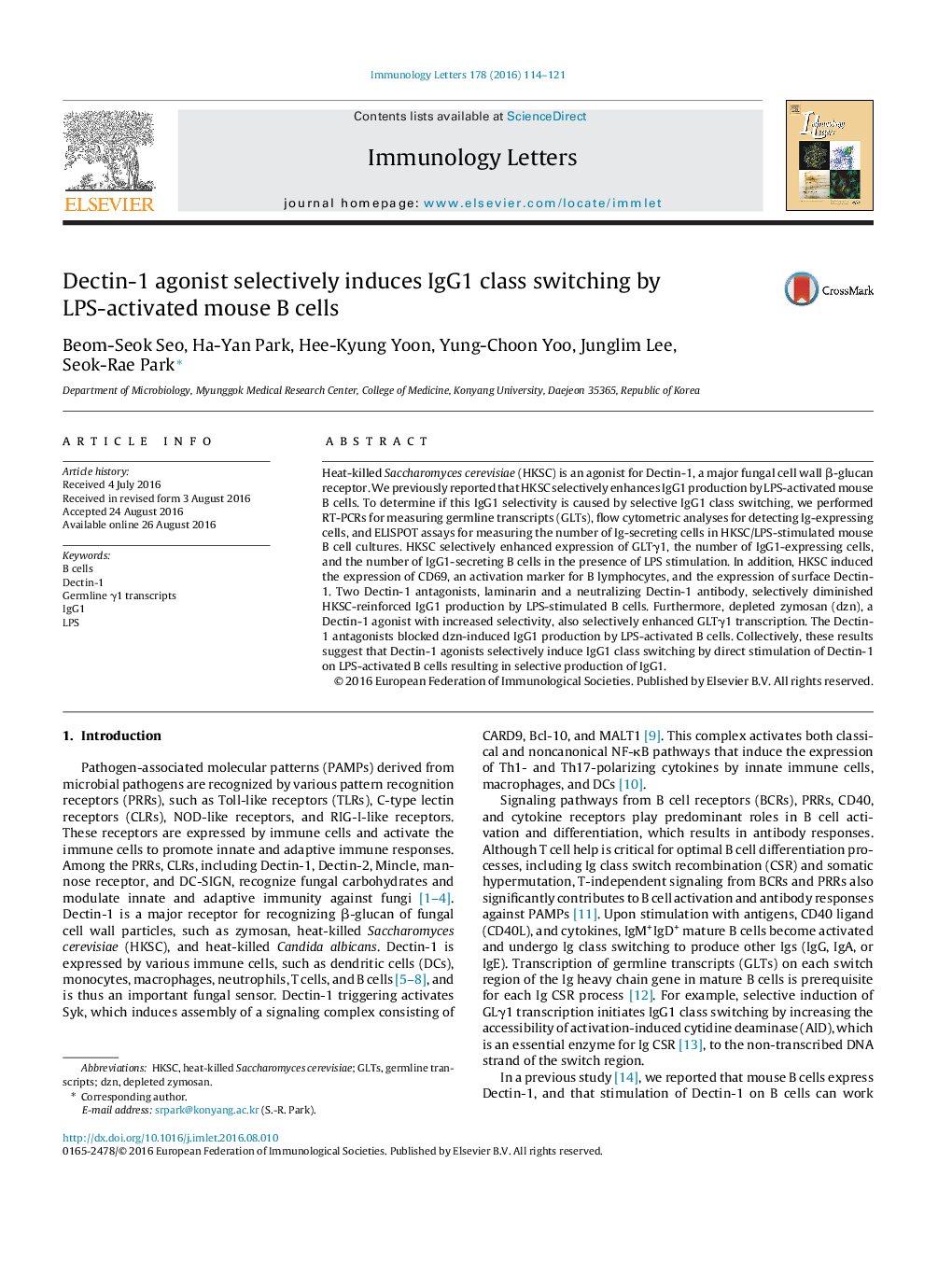| Article ID | Journal | Published Year | Pages | File Type |
|---|---|---|---|---|
| 6116956 | Immunology Letters | 2016 | 8 Pages |
Abstract
Heat-killed Saccharomyces cerevisiae (HKSC) is an agonist for Dectin-1, a major fungal cell wall β-glucan receptor. We previously reported that HKSC selectively enhances IgG1 production by LPS-activated mouse B cells. To determine if this IgG1 selectivity is caused by selective IgG1 class switching, we performed RT-PCRs for measuring germline transcripts (GLTs), flow cytometric analyses for detecting Ig-expressing cells, and ELISPOT assays for measuring the number of Ig-secreting cells in HKSC/LPS-stimulated mouse B cell cultures. HKSC selectively enhanced expression of GLTγ1, the number of IgG1-expressing cells, and the number of IgG1-secreting B cells in the presence of LPS stimulation. In addition, HKSC induced the expression of CD69, an activation marker for B lymphocytes, and the expression of surface Dectin-1. Two Dectin-1 antagonists, laminarin and a neutralizing Dectin-1 antibody, selectively diminished HKSC-reinforced IgG1 production by LPS-stimulated B cells. Furthermore, depleted zymosan (dzn), a Dectin-1 agonist with increased selectivity, also selectively enhanced GLTγ1 transcription. The Dectin-1 antagonists blocked dzn-induced IgG1 production by LPS-activated B cells. Collectively, these results suggest that Dectin-1 agonists selectively induce IgG1 class switching by direct stimulation of Dectin-1 on LPS-activated B cells resulting in selective production of IgG1.
Related Topics
Life Sciences
Immunology and Microbiology
Immunology
Authors
Beom-Seok Seo, Ha-Yan Park, Hee-Kyung Yoon, Yung-Choon Yoo, Junglim Lee, Seok-Rae Park,
